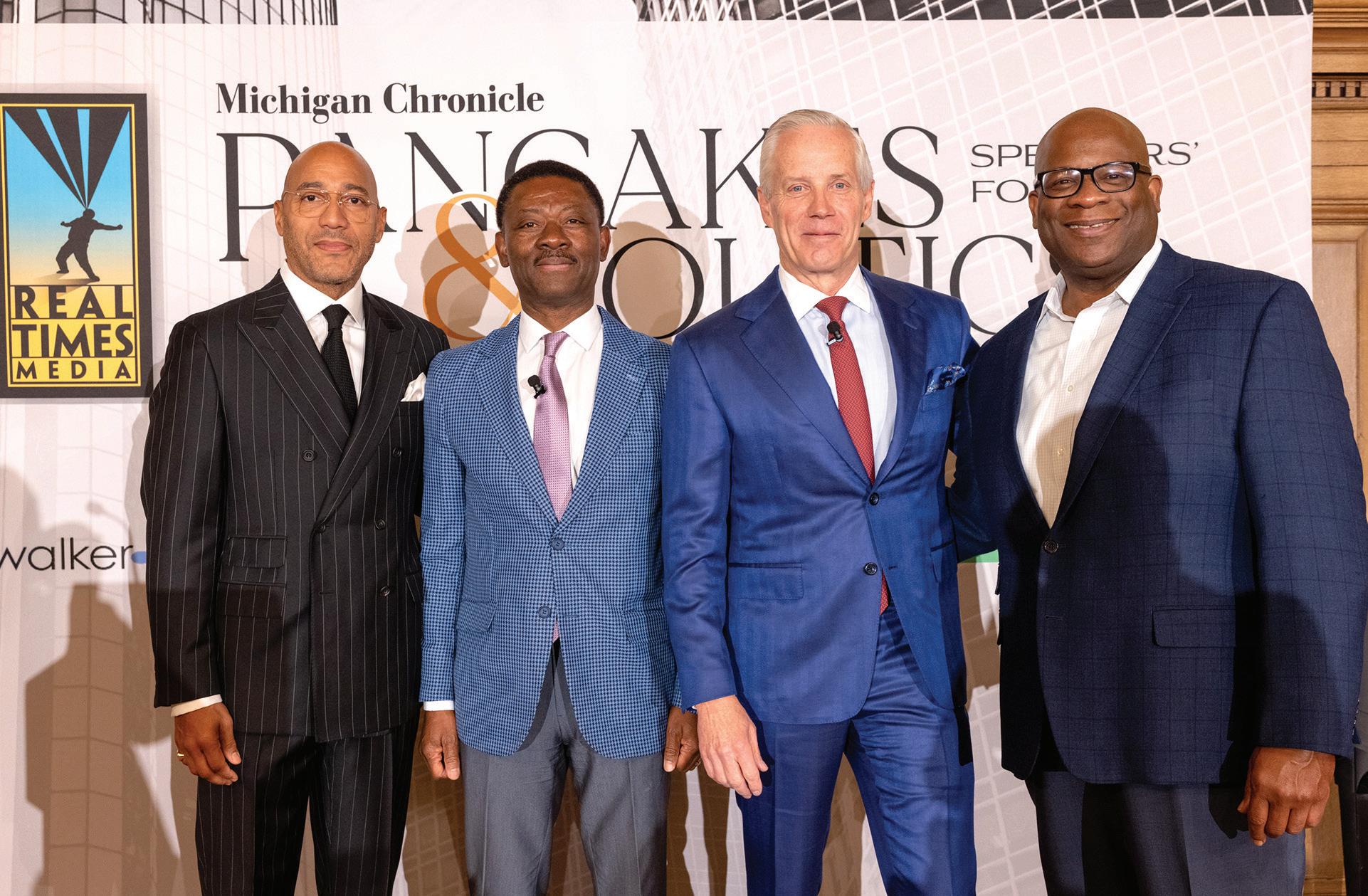
3 minute read
Research Shows New Car Safety Features Can Help with Crash Reduction
(StatePoint) At a time when highway fatalities are on the rise, new research shows that the widespread adoption of the latest vehicle safety features could mean fewer crashes and safer roads. However, it could be awhile before we see the full benefits of these advancements.
“With drivers holding onto their vehicles for 10 years or more, it could take many years before the fleet fully turns over,” says Rini Sherony, senior principal engineer, Toyota Collaborative Safety Research Center.
But what if every vehicle on the road was fully equipped with crash-prevention features? And how do engineers identify which new vehicle safety features to prioritize next? To find out, Toyota Collaborative Safety Research Center and Virginia Tech teamed up to research the potential benefits that different safety systems have in various crash scenarios.
The team took real-world crashes and reconstructed the data, performing multiple crash simulations. They started modeling with more traditional “passive” safety features, like the latest vehicle structures, and extended their work to include such technologies as automatic emergency braking, lane-keeping assistance, blind-spot warning, etc. Assuming full deployment and optimal acti-
(Family Features) Your nose is essential for conditioning the air you breathe and serves as the first line of defense against dust, pollution, bacteria, viruses and more. The presence of these substances in your nasal passages can trigger infections, disease and illness.
Proper nasal hygiene involves keeping your nasal passages clean, clear and moisturized, enhancing your nose’s ability to function and reducing congestion that can disrupt breathing or cause irritation. However, the nose is one of the most overlooked body parts in daily hygiene routines, according to a survey of 2,000 adults conducted by OnePoll on behalf of Xlear, with 54% of respondents saying they’ve never considered the role their noses may play in their overall health, and more than one-quarter (29%) admitting they ignore cleaning their sniffers.
“Keeping the nose clean is important because essentially all respiratory problems begin there,” said Dr. Lon Jones, D.O., certified osteopathic family physician and expert for Xlear, a leading manufacturer of xylitol-based products in North America. “With its connections to the ears, sinuses, eyes and lungs, it acts as a nidus, a nest from which bacteria and viruses spread to other parts of the body.”
Consider these tips to improve nasal hygiene and keep upper airway passages clear.
Practice Good Hygiene: Simple practices like covering your nose and mouth when you sneeze or cough, avoiding touching your face and washing your hands regularly can help reduce the amount of bacteria that enter your body through your nose.
Wash Your Nose: To help fight germs related to bacteria that cause allergies and viruses, rinse your sinuses vation of safety features, such as those that were modeled, their research showed that over half of all U.S. crashes could be avoided and nearly 60% of moderate to serious injuries could be mitigated. At the same time, the research also identified what types of crashes are likely to still occur even if these safety features were deployed.
The research center has made the study’s data, found at toyota.com/CSRC, publicly available so that automakers, policymakers, technology research universities and tech companies can work together to continue to make safety gains and fill the crash prevention gap.
“While drivers can’t avoid every danger on the road, our research shows that safety systems have the potential to be very effective in reducing the risk and severity of crashes,” says Sherony. “It’s important to know that most automakers offer features like lane departure warning, automatic emergency braking, audio warnings and steering assist (often with additional functionality). When you search for your next car, consider these features, even possibly opting for those that do not come standard-equipped. We hope that as drivers continue to adopt and use such technologies, we will be able to realize more of the accident mitigation and prevention benefits that they can offer, resulting in safer roads for everybody.” daily with a solution such as Xlear, the makers of which also created National Wash Your Nose Day. Featuring the power of xylitol, a natural ingredient that does not allow bacteria to adhere to nasal airway tissue, the natural sinus care system not only cleanses but can help people of all ages with fighting congestion; opening airways; blocking debris, allergens and viruses; and pulling moisture to hydrate dry, irritated nasal tissue.
“By nose washing daily with xylitol, we support our nasal defenses in their attempts to flush away threats, resulting in reduced problems and a proactive approach to promote nasal health and hygiene,” Jones said.

Keep Your Sinuses Moist: Drinking plenty of water is good for overall health and helps keep your nasal passages moist and mucus flowing properly. Another step you can take is using a humidifier in your home, especially in the bedroom, to help maintain moisture. Remember to regularly clean the humidifier or it could have the opposite effect.
Avoid Pollutants: Exposure to pollutants and allergens may result in swelling or congestion in the upper airway. Whenever possible, you should avoid cigarette smoke, cleaning products, hairspray and other materials that give off unnatural fumes. Also beware of dust, mold, pet dander and pollen, which are common allergens that can cause sinus problems for many.
Be Kind to Your Nose: When blowing your nose, gently blow one nostril at a time as forceful blowing can irritate the nasal passages and propel bacteria back up into your sinuses. Also avoid removing nose hairs, or do so carefully, as they naturally help filter dirt and debris.
To find more solutions to keep your nose healthy, visit xlear.com.








